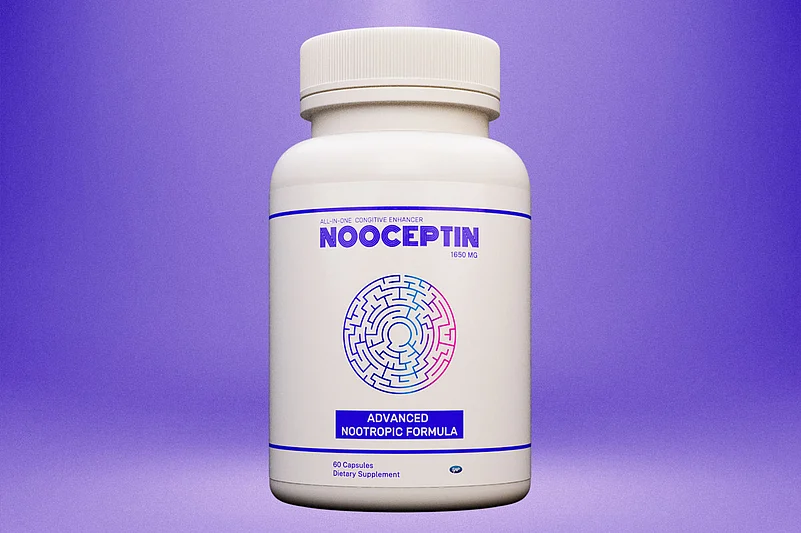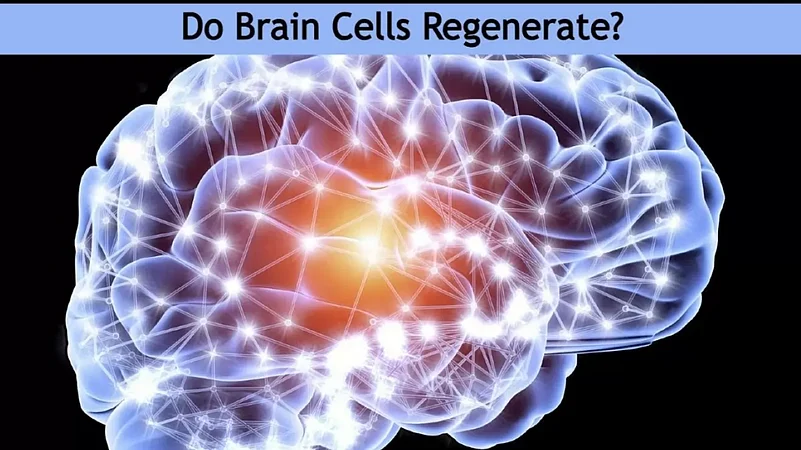Over the past two decades, our knowledge of the human brain has changed dramatically. In the past, it was widely believed among scientists and doctors that the ability to produce new brain cells ceased in adulthood. This idea raised concerns given that various factors such as aging could create damage to our brain cells. But recent research advances have given us many new insights into how our brains work. We now understand that neurogenesis, the biological process that produces new brain cells, continues throughout our lives. This finding is not only interesting, but also very important. Click Here to Buy Best Brain Supplements Of 2023
Advertisement
Scientists have found ways to successfully grow new brain cells that can improve mental health and improve brain function During our lifetime, our brains have the amazing ability to constantly generate new neurons. This incredible power will remain even as we grow in grace. Neurogenesis, the process of making new brain cells, takes place in various regions of our brain, including the striatum, hippocampus, amygdala, hypothalamus, olfactory bulb, and possibly the cerebral cortex.
It is important to note that neural connections and brain cells that go unused can deteriorate and perish over time. In the promotion of post-adolescent neurogenesis, several neurotransmitters such as serotonin, GABA, dopamine, and glutamate play significant roles. However, the pivotal chemicals for fostering the formation of new brain cells are brain-derived neurotrophic factor (BDNF) and nerve growth factor (NGF). These substances hold the key to unlocking the potential for generating fresh neural cells within our brains.
Advertisement
The process of neurogenesis holds particular significance when faced with elevated stress levels and a rise in cognitive impairment. Age-related cognitive decline can be addressed by fostering the production of new brain cells.
It is worth noting that impaired neurogenesis has been associated with a range of neurological and psychiatric conditions, encompassing traumatic brain injury, Huntington's disease, Alzheimer's disease, epilepsy, stroke, depression, Parkinson's disease, and substance use disorders. Certain medications may hinder the generation of fresh neurons. Nevertheless, proactive promotion of neurogenesis can potentially counteract these effects.
Let’s a look deeper through this article, Read on.
Increasing production of Brain Cells
Attaining the essential nutrients required for optimal brain health and cognitive function solely through dietary means can prove challenging due to several factors, compromised sleep quality, including inadequate dietary choices, environmental pollution, elevated stress levels, and the use of certain medications.
Nutritional supplements offer a means to provide the foundational components necessary for the generation of new brain cells. They can enhance stress resilience and supply the brain with vital elements to sustain cognitive vitality. Additionally, practices such as calorie restriction and intermittent fasting have shown associations with heightened neurogenesis, while consuming foods that require more chewing can also promote the formation of brain cells.
Advertisement
Specific nutrients, including olive oil, omega-3 fats, curcumin, resveratrol, apigenin, flavonoids, L-theanine, lion's mane, choline, and gotu kola, possess neurogenerative properties and can be acquired through dietary sources or supplements. Inadequate levels of vitamin A, B vitamins, and zinc can impede the growth of new brain cells, but the consumption of a reliable multivitamin can aid in enhancing brain cell production.
A variety of reputable nutritional supplements are available to support brain health and optimize cognitive performance. Among them, there are high-quality nootropics derived from natural ingredients.
Consuming a reduced caloric intake can facilitate neurogenesis by mitigating inflammation and boosting brain-derived neurotrophic factor (BDNF) production. Similarly, adopting a less frequent eating pattern can yield comparable outcomes.
Advertisement
Engaging in intermittent fasting, which entails extended periods of fasting up to 20 hours between meals, can further enhance neurogenesis. Additionally, opting for foods that require more chewing can stimulate the generation of fresh brain cells. However, it's important to note that a diet rich in saturated fats can significantly hinder neurogenesis.

Food Required for Brain Cell Regeneration
Specific nutrients like Omega-3 fats, curcumin, flavonoids, olive oil, resveratrol, apigenin, and L-theanine exhibit neurogenerative properties and can facilitate the proliferation of fresh brain cells. These nutrients can be obtained through dietary sources or supplementation, with food sources generally being more preferable.
Advertisement
Omega-3 fats are commonly found in oily fish and several fish-oil supplements. Foods such as cocoa, blueberries, and green tea are rich in flavanoids. Curcumin is present in turmeric. Resveratrol can be found in chocolate, pistachios, peanuts, raspberries, grapes, blueberries, cranberries, and peanut butter. Olive oil also has the potential to stimulate the generation of new brain cells.
Apigenin, a phenolic compound known for its potential to stimulate neurogenesis, can be found in celery, chamomile tea, and parsley. L-theanine, present in true teas derived from Camellia sinensis, is associated with inducing a state of relaxed focus. It supports the production of BDNF and NGF, leading to the growth of new neurons through neurogenesis.
Advertisement
Choline, a naturally occurring compound found in every cell of the body, serves as a precursor to citicoline. Citicoline helps maintain existing brain cells while promoting neurogenesis. While choline is concentrated in animal-derived ingredients like brain or liver, it is also available as a supplement (I recommend obtaining it in supplement form).
Another fascinating option is the Lion's mane mushroom (Hericium erinaceus), a distinctive mushroom with a slightly fishy taste that offers numerous health benefits. It contains approximately 70 bioactive compounds, including two special groups called hericenones and erinacines, which stimulate the production of nerve growth factors.
As Lion's mane mushrooms can be challenging to find as food ingredients, many individuals opt for Lion's mane supplements to harness their advantages. Additionally, there is gotu kola (Centella asiatica), an herbal ingredient frequently used in traditional remedies and cuisine across Asian countries.
Advertisement
It triggers the release of NGF and BDNF, stimulating the growth of neurons through its various beneficial compounds. Gotu kola, on the other hand, is predominantly accessible as a supplement in Western regions.
Consider doing a Mental workout
Studies have revealed elevated levels of neurogenesis in the brains of taxi drivers in London. These individuals are required to memorize the intricate streets and landmarks of the city, providing their brains with a rigorous exercise. MRI scans have demonstrated that the hippocampus of a typical London cabbie is notably larger than average.
Advertisement
The hippocampus plays a crucial role in memory storage and organization, as well as spatial navigation. Engaging the brain with novel and complex activities stimulates neurogenesis and helps maintain its optimal functioning.
Related Read: Vyvamind Reviews
Consider doing a Physical workout
Engaging in moderate-intensity aerobic exercises, such as jogging, cycling, brisk walking, hiking, or swimming, can facilitate the generation of new brain cells while enhancing mental well-being.
Consider incorporating a workout regimen that involves sprinting for approximately 30 seconds, followed by exercising at a moderate intensity for five minutes. Repeat this cycle five times without resting to maximize cognitive advantages. Whenever feasible, exercising outdoors is recommended, as exposure to sunlight has been strongly associated with the production of brain-derived neurotrophic factor (BDNF), a protein that stimulates the growth of new brain cells.
Advertisement
Ensure you Rest enough
Ensuring an adequate amount of restful sleep is essential for preserving optimal brain health and promoting mental well-being. During the sleep cycle, the brain undertakes vital processes such as toxin elimination, self-repair, memory organization, and consolidation, as well as the generation of fresh brain cells.
Sustained sleep deprivation can impede the formation and upkeep of new brain cells, although sporadic instances of sleeplessness are unlikely to profoundly impact brain cell vitality or regeneration.
If you experience a night of disrupted sleep, engaging in exercise the following day can help mitigate any adverse effects on brain-derived neurotrophic factor (BDNF) levels, thus promoting overall brain health.
Advertisement
The Final Conslusion
Our knowledge of the human brain has undergone significant transformation in recent decades. Previously, it was widely believed that the generation of new brain cells ceased once adulthood was reached. However, we now understand that neurogenesis, the process of creating fresh brain cells, persists throughout our entire lifespan and can be influenced by various lifestyle factors.
Neurogenesis takes place in different regions of the brain, such as the hippocampus, striatum, amygdala, hypothalamus, olfactory bulb, and potentially the cerebral cortex. Inactive brain cells or neural connections can deteriorate and perish, underscoring the importance of utilizing them. While several neurotransmitters, including dopamine, serotonin, GABA, and glutamate, contribute to adult neurogenesis, brain-derived neurotrophic factor (BDNF) and nerve growth factor (NGF) play pivotal roles in promoting the development of new brain cells.
Advertisement
Supplementary nutrition can furnish the essential components required for generating fresh brain cells and neurotransmitters, while enhancing stress resilience and providing the necessary sustenance for cognitive vitality.
Studies have revealed a positive correlation between calorie restriction, intermittent fasting, and heightened neurogenesis, while the consumption of more challenging-to-chew foods has also demonstrated the potential to promote the formation of brain cells. Specific nutrients such as flavonoids, omega-3 fats, olive oil, curcumin, resveratrol, apigenin, choline, L-theanine, lion's mane, and gotu kola possess neurogenerative attributes and can be acquired through dietary sources or supplementation.
Engaging in novel and intricate activities provides a stimulus for the generation and preservation of fresh brain cells. Consistent participation in moderate-intensity aerobic exercises serves as an optimal means to foster the growth of new brain cells while enhancing mental well-being. Adequate and restful sleep plays a vital role in upholding favorable brain health and overall mental wellness.
Advertisement
By integrating these elements, one can cultivate a recipe for lifelong brain health and vitality, even as the years advance.
Disclaimer:
The above is a sponsored post, the views expressed are those of the sponsor/author and do not represent the stand and views of Outlook Editorial.




















